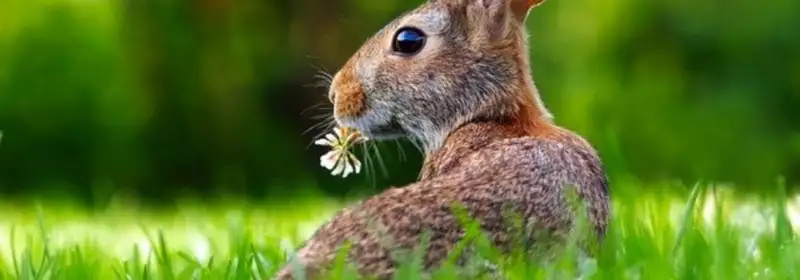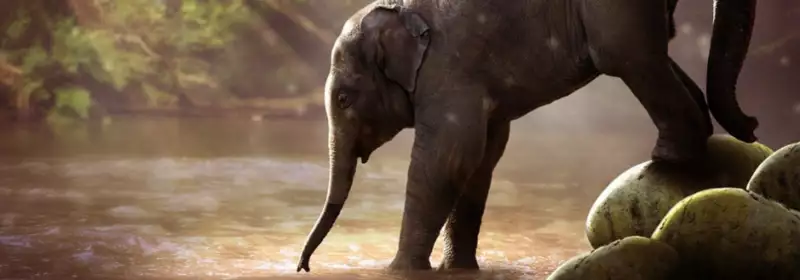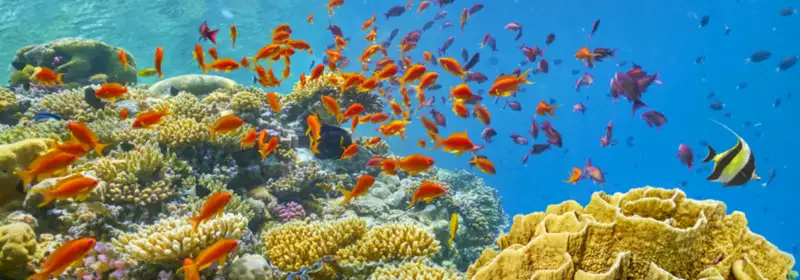There has never been a more important time to start a career in animal conservation. With worldwide wildlife habitats destroyed by approximately 5,760 acres daily, around 30,000 species are being driven to extinction each year. That’s estimated to be about three per hour, but this number can be reduced with successful conservation efforts.
Our rapidly growing population is seeing natural resources consumed quicker than ever before. Not only is this level of growth and consumption unsustainable, it’s encroaching on and endangering wildlife habitats and their existence.
As a wildlife conservationist, you strive to protect plant and animal species, along with their habitats from threats. You might be passionate about the effects of climate change, the preservation of endangered species or conserving natural environments. Whatever your interests, you can find an area of animal or wildlife conservation to suit you.
Wildlife is essential for a balanced and stable ecosystem, with each species having its part to play. So, no matter the area of conservation you want to work in, each makes a difference to our planet.
Find out more about how to start a rewarding career in conservation and what it’s really like below.

Is a Career in Conservation right for me?
There are a large number of roles that come under the subject of conservation. So the workday for most will be quite different. Each will have its own goals, and they can take place in a variety of settings.
However, a common misconception about conservation work is the level of interaction you have with animals. You may hope to see and work with them up close, but the reality can be quite different. The aim to encourage a thriving wildlife habitat generally means as little human disruption as possible. You may get to see them, but usually from a safe and comfortable distance.
There is also a considerable amount of administrative work involved in most roles too. So while you’ll spend a lot of time out in the field, you will still spend some of it in the office behind a desk, analysing, studying and researching.
Outside of a little bit of admin, most roles are incredibly diverse. Offering a mixture of community work, wildlife observation, research, events, awareness and educational activities. Which is perfect for those who enjoy being active and having something different to do each day.
Though each role has a specific skillset, generally you’ll need the below for all:
- Attention to detail - being able to identify different plant and animal species accurately.
- Analysis and investigation - competent in gathering information for research purposes.
- Patience - prepared to wait as long as it takes to collect the necessary observation data.
- Planning and organisation - good at organising activities and the people/resources needed.
- Map reading and navigation - finding and recording locations out in the field.
- Communication with a team player attitude - comfortable working as part of a team to drive projects, effectively communicate findings and educate others about conservation efforts.
- Time management - working effectively to project completions.

How to improve your employment prospects
Conservation is extremely competitive as a profession, so knowing how to get yourself noticed is important. A few things you can do to stand out from the other applicants are:
Get experience
You need experience and skills to support your ambition. Many people are passionate about species protection. But employers for paid positions will want to see you have what it takes to do the job.
A great way of getting this experience is by volunteering for organisations you’d like to work for. Ideally, try to do this in roles that are highly relevant to what you want to do. This can help better align you with a paid position when the time comes.
Conservation work is generally hands-on and practical for the most part. Volunteering helps you get comfortable and familiar with the work that is expected of you and proves you’re capable.
It’s also an excellent way to build contacts, which can come in handy when you’re looking for a job. You can find volunteer conservation opportunities all over the world. Going abroad at this time can be a great way to experience exotic habitats and species. Which could potentially influence your future career choice. Otherwise, there are plenty of opportunities in the UK too in zoos, safari parks and nature reserves.
Study Conservation
The type of qualifications you need will depend on the career you wish to pursue. Many conservation professionals have PhDs and other higher-level qualifications. But often these are in heavily science-based roles such as an Ecologist, Zoologist, Biologist or Researcher.
Other roles can be accessed with experience or knowledge gained from targeted courses. Which focus on specific areas or roles in wildlife conservation, and provide a blend of practical training and theoretical knowledge:
African Wildlife Conservation
Protecting native African species from illegal trade, poachers and hunters. Conservationists also work to support environmental education and teaching local communities the importance of conserving animals.
There are many fascinating roles in this area of conservation.
Ecologist
Studying ecosystems, the people, plants and animals within them and how human activity affects them. Generally specialising in one area like terrestrial, fauna or flora.
You can start to discover the intricacies of ecosystems through an Ecology Diploma Level 3.
Marine Conservationist
Preserving seas, shores and vulnerable marine species by limiting human damage to marine ecosystems and restoring areas with existing damage. Marine Scientists, Biologists and Oceanographers are popular science-based roles. Though others like Beach and River Clean Project Officers can be accessed through volunteering or as a sidestep from related roles.
Gain your knowledge of marine environments through the Marine Conservation Studies Diploma Level 3.

Wildlife Rehabilitator
Working with rehabilitation centres or animal sanctuaries to help sick or injured animals and returning them to their natural habitats.
This Wildlife Rehabilitation Studies Diploma Level 3 can help you get job ready.
Zookeeper
Delivering daily care and ensuring the welfare of animals kept in zoos and similar environments. Providing for each animals’ needs and making sure they receive physical and psychological enrichment.
The mixture of academic and practical training in this Level 3 Diploma in Zookeeping will help you find employment as a Zookeeper.
Get Conservation skills online
There are many courses you can take to start a career in animal conservation. The great benefit is most of them can be studied online.
By taking an online course you can retrain or upskill for a new career around your current schedule. So, if you need to study after work, or while you look after your children, it’s easy to do so.
The courses that include practical training have multiple times available throughout the year for you to complete this element. Giving you more options to work with that allow you to plan for them in advance.
You can take what you’ve learnt into further education or use your knowledge and skills to pursue a new career.
learndirect is the leading UK distance learning provider, with many online courses related to wildlife conservation. If you’re ready to start a rewarding conservation or sustainability-related career but don’t know which path to take, click the link to download our FREE sustainability course brochure below and find the course that suits your goal.



















